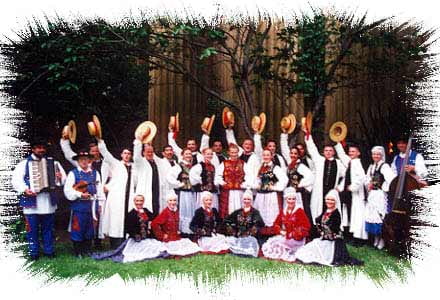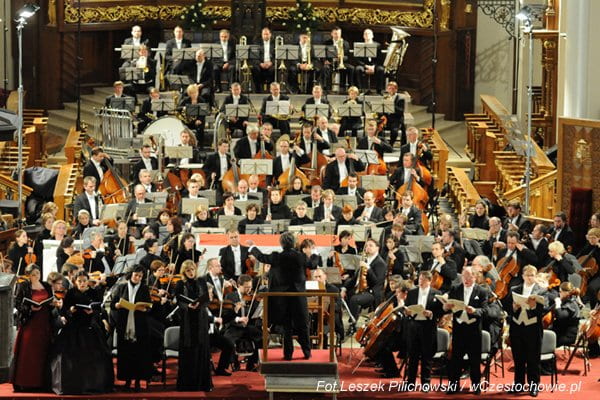Polish Music Newsletter Vol. 17, no. 6
PMC News
Manuscripts Attract Scholars Of All Ages
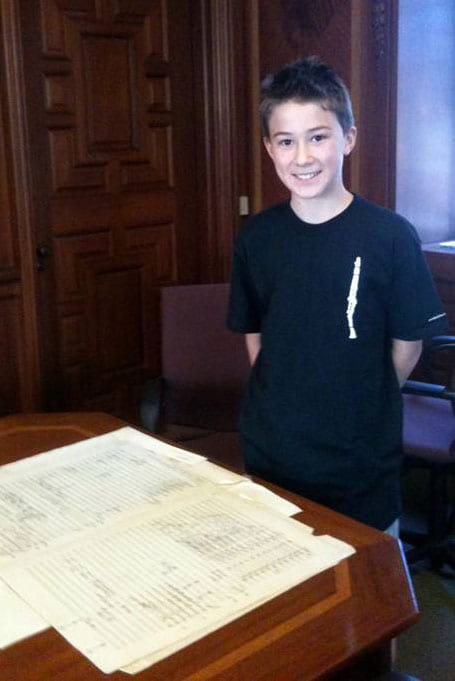 On June 3the 11-year old clarinetist Andrew Moses of Venice, CA visited the Polish Music Center’s Manuscript Collection. Inspired by his love of the music of Witold Lutosławski, Andrew and his mother Shannon spent an hour pouring over the meticulously handwritten manuscripts to such pieces as Novelette for orchestra (1979), Mi-Parti for orchestra (1976), and Paroles tissées for tenor and orchestra (1965). Although probably the youngest researcher to ever view the PMC’s Manuscript Collection, the sincerity and skill with which Andrew approached the delicate pages of music suggested a level of musical dedication beyond his young age.
On June 3the 11-year old clarinetist Andrew Moses of Venice, CA visited the Polish Music Center’s Manuscript Collection. Inspired by his love of the music of Witold Lutosławski, Andrew and his mother Shannon spent an hour pouring over the meticulously handwritten manuscripts to such pieces as Novelette for orchestra (1979), Mi-Parti for orchestra (1976), and Paroles tissées for tenor and orchestra (1965). Although probably the youngest researcher to ever view the PMC’s Manuscript Collection, the sincerity and skill with which Andrew approached the delicate pages of music suggested a level of musical dedication beyond his young age.
An earlier outcome of Andrew’s interest in Lutosławski was his performance of movements 1,2 & 5 of the composer’s Dance Preludes during the Season Finale concert of the Glendale Youth Orchestra on May 22, 2011. After the performance, reviewer Ted Ayala wrote the following for the Crescenta Valley Weekly: “Moses held a firm grasp of the work and infused the music with a potent rhythmic vitality…. The work’s virtuosic demands were tossed off with nonchalant grace and wit by Moses. This is a musician of enormous talent and I hope that he continues on his musical path.” Andrew’s performance of this piece—in a setting for clarinet and piano, accompanied by Dr. Tania Fleischer in April 2011—can be viewed on YouTube, along with his encore performance of P. Harvey’s Variations on “I Got Rhythm” from the Season Finale concert in May. Andrew studies with Margaret Thornhill, conductor and founder of the Los Angeles Clarinet Choir.
 Lutosławski’s manuscripts, which were donated in January 1985 on the occasion of the founding of the Polish Music Reference Center (now: PMC), were the first documents in the PMC’s Manuscript Collection. Now containing hundreds of priceless scores and letters donated by Polish composers and their families, the Manuscript Collection is housed in the Special Collections Department of USC’s Doheny Library and is available for viewing by appointment.
Lutosławski’s manuscripts, which were donated in January 1985 on the occasion of the founding of the Polish Music Reference Center (now: PMC), were the first documents in the PMC’s Manuscript Collection. Now containing hundreds of priceless scores and letters donated by Polish composers and their families, the Manuscript Collection is housed in the Special Collections Department of USC’s Doheny Library and is available for viewing by appointment.
Recent Donations
Music by Maciejewski and Moss
From our friend in Warsaw, conductor Joseph A. Herter, we received three fine items for our audio visual library:
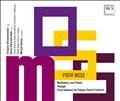 A CD with music by Piotr Moss, including Meditation und Psalm, Voyage, and Cinq tableaux de Caspar David Friedrich. This DUX 0820 release features over 70 minutes of music, performed by the Polish National Radio Symphony Orchestra in Katowice, Kraków Polish Radio Choir, and two harp soloists, Grażyna Strzeszewska and Anna Sikorzak-Olek, and Michał Klauza conductor.
A CD with music by Piotr Moss, including Meditation und Psalm, Voyage, and Cinq tableaux de Caspar David Friedrich. This DUX 0820 release features over 70 minutes of music, performed by the Polish National Radio Symphony Orchestra in Katowice, Kraków Polish Radio Choir, and two harp soloists, Grażyna Strzeszewska and Anna Sikorzak-Olek, and Michał Klauza conductor.
A DVD of the filmed version of Roman Maciejewski’s Requiem—Missa pro defunctis, performed by the Warsaw National Philharmonic Orchestra and Choir with soloists Zdzisława Donat, Jadwiga Rappé, Jerzy Knetig, and Janusz Niziołek, conducted by Lars Benstorp. About 62 minutes of this monumental work are presented in the film directed by Stefan Szlachtycz. The footage used comes from a performance on September 2, 1990 at the Cathedral of St. Mary Magdalene in Wrocław, Poland, which was attended by the composer.
The DVD of An oustsider—A Portrait of an Individual Composer, another documentary about Roman Maciejewski by Stefan Szlachtycz. It features interviews (including important figures in Polish culture as Witold Lutosławski, Czesław Miłosz, Paweł Rydel, Stefan Stuligrosz, Roger Wagner, Elizabeth Wars, among others) and fragments of the performance of Maciejewski’s Requiem in Wrocław (September1990) mentioned above. The composer himself provides an extensive interview about his life and career. Additional commentary provided by his brother, Wojciech, puts the family history in perspective. The hour-long film has English subtitles and would be of great interest to anyone studying the phenomenon of Roman Maciejewski and his musical legacy.
The 2011 Report on Polish Music
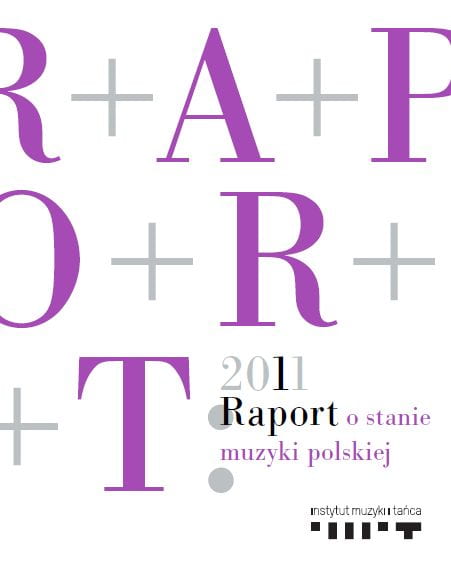 Another excellent addition to our library came recently from the National Institute of Music and Dance [Instytut Muzyki i Tańca] in Warsaw, via IMiT director Andrzej Kosowski, a longtime friend of the Polish Music Center. Thanks to Dir. Kosowski and PWM Editions, our library continues to add scores and books that are practically unobtainable outside of Poland.
Another excellent addition to our library came recently from the National Institute of Music and Dance [Instytut Muzyki i Tańca] in Warsaw, via IMiT director Andrzej Kosowski, a longtime friend of the Polish Music Center. Thanks to Dir. Kosowski and PWM Editions, our library continues to add scores and books that are practically unobtainable outside of Poland.
Edited by Joanna Grotkowska and Andrzej Chłopecki, the Raport o stanie muzyki polskiej—Warszawa 2011 [Report on Polish Music—Warsaw 2011] is an extensive reference source on the current state of music in Poland. Dir. Kosowski’s extensive Introduction is followed by several chapters that discuss and examine musical styles, composers, performers, audiences, funding sources, musical education, and research facilities. This wide-ranging report deals not only with classical contemporary music, but also covers the alternative scene, jazz, pop, rock, and hip-hop, as well as folk music of many regions and nationalities. Dance, film music, festivals, and extensive statistics complete this much needed and very welcome publication.
The Report is also available online in PDF format at platformakultury.pl.
Thank you, as always, to our generous supporters and donors!
Paderewski Festival Youth Exchange In Poland
From June 22 to July 4, 2011, three winners of the 2010 Paderewski Youth Piano Competition in Paso Robles – Jordan Adams (16) and Madeline Anderson (15) from Monterey, and Evan Lin (14) from San Luis Obispo – will travel to Poland on an all-expenses-paid 12-day trip. These young pianists from the Central Coast will perform in concerts, receive individual and group music instruction, and participate in cultural exchange alongside piano students from the Tarnów region of Poland and the Zhytomyr region of the Ukraine, three areas that share historical ties to the personal life of Ignacy Jan Paderewski. Funding for the Paderewski Festival Youth Exchange Program, now in its third year, is shared between the Paderewski Festival in Paso Robles and the City and Province of Tarnów, Poland. This year’s exchange program builds upon the first visit of young San Luis Obispo County musicians to Poland in 2009, and the 2010 visit of young Polish musicians to Paso Robles.
The 2011 exchange students will study piano and chamber music with internationally renowned pianists Marek Żebrowski and Igor Lipinski, and cellist Lars Hoefs at Paderewski’s former estate in Kąśna Dolna near Tarnów. In addition to music workshops, highlights of this summer’s exchange will include performances during the unveiling of the new Paderewski Monument at the Musicology Institute of Jagiellonian University in Kraków on June 25, as well as at a culminating recital for all participants at Kąśna Dolna on July 2. Students will also sightsee in the former capital city of Kraków, and participate in excursions to the famous Wieliczka salt mine and the mountain resort of Krynica.
The Central Coast students will be accompanied by a parent chaperone, as well as an official delegation comprised of John Hamon (Mayor Pro Tem, City of Paso Robles) and Paderewski Festival Board Members Marjorie Hamon, Steve Cass, Alice Cass, Krysta Close and Marek Żebrowski. The delegation will attend the unveiling of the Paderewski Monument at the Jagiellonian University in Kraków, and participate in meetings with both the Ministry of Culture and National Heritage and the Ministry Foreign Affairs in Warsaw. Meetings with the Marshall of the Malopolska region in Kraków, and with local business owners and the District Supervisor in Tarnów are also planned. Travelling at their own expense, members of the delegation will explore further cultural and economic ties with the region, and fundraising opportunities for the Paderewski Festival in Paso Robles and related projects.
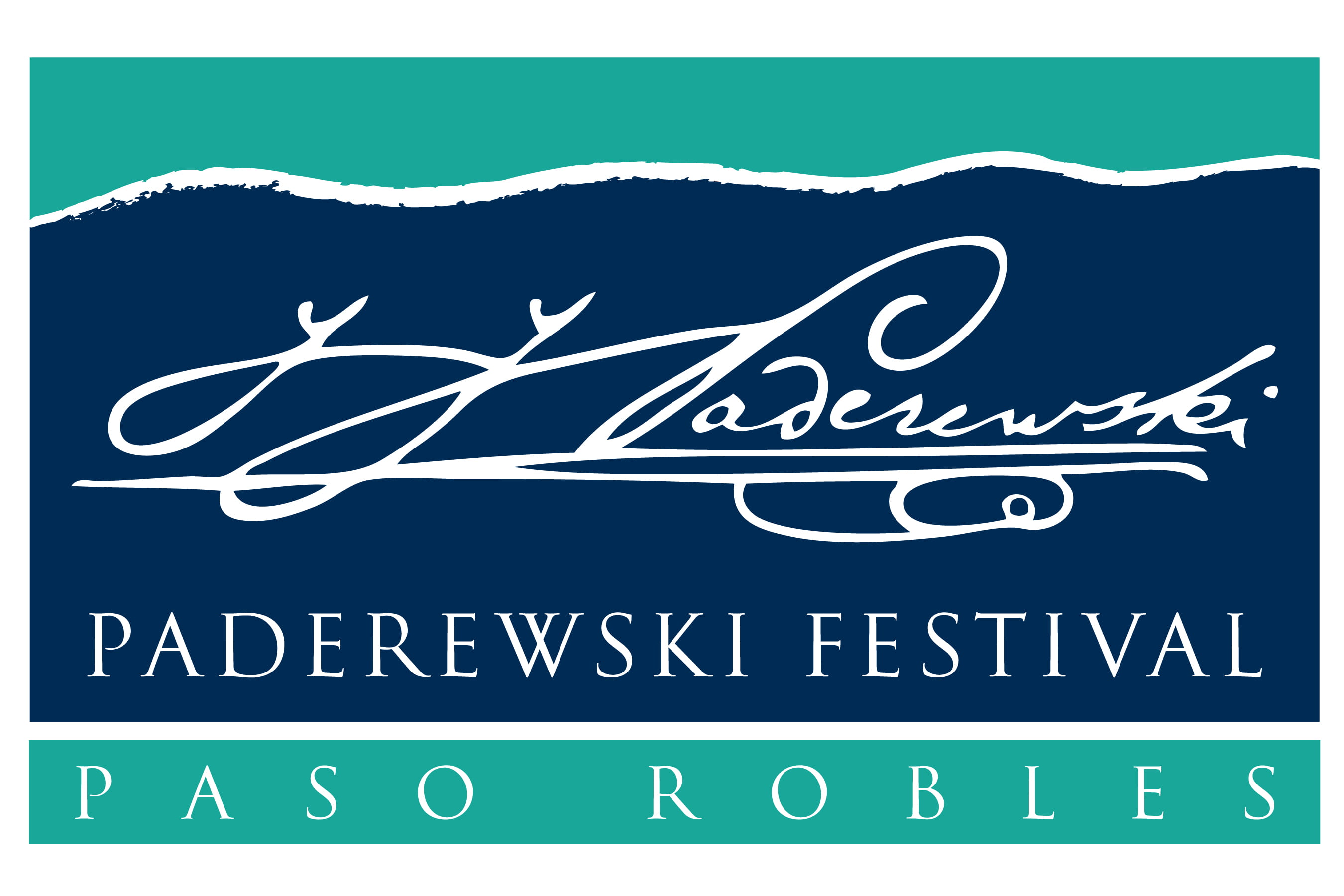 The Paderewski Festival in Paso Robles is a non-profit organization that sponsors an annual series of concerts featuring internationally acclaimed artists, the Paderewski Youth Piano Competition and Exchange Program, and other Paderewski-themed events.
The Paderewski Festival in Paso Robles is a non-profit organization that sponsors an annual series of concerts featuring internationally acclaimed artists, the Paderewski Youth Piano Competition and Exchange Program, and other Paderewski-themed events.
This year’s Paderewski Festival will be held from November 10-13, 2011 and will mark the 20th anniversary of the Festival in Paso Robles. Concerts of solo piano, jazz and chamber music, an exhibit of Paderewski memorabilia, celebrations of local young musicians and lectures by experts are planned. Participants will include: Leszek Możdżer, jazz pianist; Eduard Kunz, winner of the 2010 International Paderewski Piano Competition in Bydgoszcz; Dr. Kevin Starr, renowned historian, author and California State Librarian Emeritus, and the winners of the 2011 Paderewski Youth Piano Competition. Details and a schedule of events, as well as ticket reservations, will soon be available on the Festival’s website, www.paderewskifest.com. Once again, this year’s anniversary edition of the Festival will honor Paderewski’s initiative to bring music to fellow Californians by making all concerts during the 2011 Paderewski Festival in Paso Robles free of charge. To accommodate the highest possible number of concertgoers, reservations are strongly recommended and can be made online at the Festival’s website or by emailing tickets@paderewskifest.com.
[Source: Press release]
News
Polish Presidency Of The EU: Inauguration
 For the second half of 2011, Poland will preside over the Presidency of the Council of the European Union. In addition to its strictly political dimension, this new role also gives the country an opportunity to build its image as a nation and a member of the EU.
For the second half of 2011, Poland will preside over the Presidency of the Council of the European Union. In addition to its strictly political dimension, this new role also gives the country an opportunity to build its image as a nation and a member of the EU.
For many years, culture has been a vital element of Poland’s national promotion activities within in the European Union, and thus Polish cultural institutions have taken an active part in the preparations for the first Polish Presidency. Poland’s Ministry of Culture and National Heritage (MKiDN) has entrusted the National Audiovisual Institute (NInA) with the task of designing and implementing the Cultural Program of the 2011 Polish EU Presidency under the theme of “Art for Social Change.”
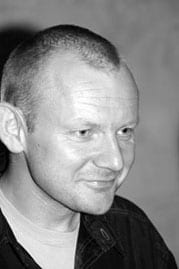 This first major event of the Presidency will be the Cultural Program of the Presidential Inauguration. Taking place on July 1 in Warsaw, it will be an entire day of musical performances held on four stages set up especially for this event. Each stage is dedicated to a different music genre, including: classical music, interdisciplinary musical performances and projects for children, alternative and jazz music, and music of national and ethnic minorities. Programs will feature Polish and European artists and will include the premiere performance of a 50‑minute piece by Paweł Mykietyn (pictured at left)—Symphony No 3, composed especially for the Inauguration of the Polish Presidency of the EU Council.
This first major event of the Presidency will be the Cultural Program of the Presidential Inauguration. Taking place on July 1 in Warsaw, it will be an entire day of musical performances held on four stages set up especially for this event. Each stage is dedicated to a different music genre, including: classical music, interdisciplinary musical performances and projects for children, alternative and jazz music, and music of national and ethnic minorities. Programs will feature Polish and European artists and will include the premiere performance of a 50‑minute piece by Paweł Mykietyn (pictured at left)—Symphony No 3, composed especially for the Inauguration of the Polish Presidency of the EU Council.
The final concert of the Inauguration Day will start at 10:00 p.m. and will center on the Main Stage on Plac Defilad in Warsaw. Entitled “WARSAW TALKING” and created by Krzysztof Materna and Kuba Wojewódzki, it will be the main event of the Inauguration. The program will take place on three stages connected by state-of-the-art multimedia links and will include the most popular classical and pop pieces performed by Polish and foreign artists, screenings of original film impressions and a spectacular fireworks show around the Palace of Culture.
 The 3.5-hour, 3-part “WARSAW TALKING” concert will begin with the anthems of Poland and the European Union. The first part will cover classical, film and jazz music hits. Works by Frederic Chopin, Andrzej Kurylewicz, Jan A.P. Kaczmarek, Krzysztof Komeda and Wojciech Kilar will be performed by distinguished pianists Janusz Olejniczak and Leszek Możdżer, Sinfonia Varsovia orchestra, the Tomasz Stańko Quintet, ‘Me, Myself and I’ and violinist Sebastian Karpiel-Bułecka. American trumpet player Chris Botti will perform as a special guest.
The 3.5-hour, 3-part “WARSAW TALKING” concert will begin with the anthems of Poland and the European Union. The first part will cover classical, film and jazz music hits. Works by Frederic Chopin, Andrzej Kurylewicz, Jan A.P. Kaczmarek, Krzysztof Komeda and Wojciech Kilar will be performed by distinguished pianists Janusz Olejniczak and Leszek Możdżer, Sinfonia Varsovia orchestra, the Tomasz Stańko Quintet, ‘Me, Myself and I’ and violinist Sebastian Karpiel-Bułecka. American trumpet player Chris Botti will perform as a special guest.
In the second part, which is intended to remind audeinces of the milestones of Polish pop music, will cover performances by Perfekt, Myslovitz, Lech Janerka and Kapela ze Wsi Warszawa. The program will also include surprising interpretations by the following artists: vocal group Manhattan Transfer, singer Michael Bolton, saxophonist Kenny G. as well as singers Angie Stone and Dolores O’Riordan (The Cranberries), asking ‘How would popular songs, such as Dream of Warsaw, In My Garden or I Lied sound performed by singers from abroad?’.
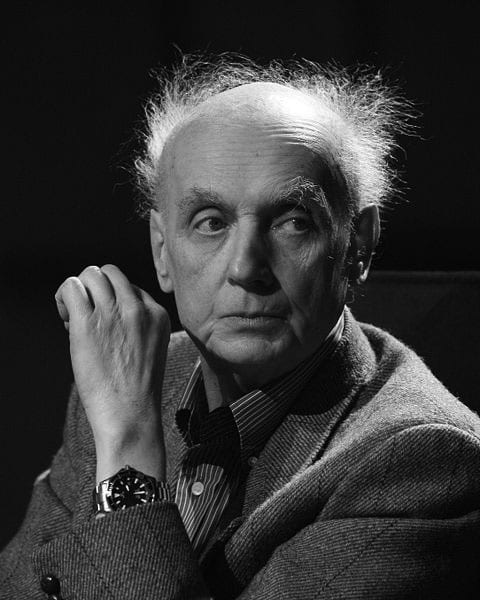 During the final fireworks show, Orawa by Wojciech Kilar (pictured at left)—a “gem of Polish chamber music” according to the organizers—will serve as background music. The evening will end with a one-hour performance by British trip-hop legend Tricky. All performances will be intertwined and enriched with film excerpts, graphics and lighting effects. The “WARSAW TALKING ” show will be broadcast by TVP1 and the Polish Radio.
During the final fireworks show, Orawa by Wojciech Kilar (pictured at left)—a “gem of Polish chamber music” according to the organizers—will serve as background music. The evening will end with a one-hour performance by British trip-hop legend Tricky. All performances will be intertwined and enriched with film excerpts, graphics and lighting effects. The “WARSAW TALKING ” show will be broadcast by TVP1 and the Polish Radio.
The Krakow Philharmonic will inaugurate the Polish Presidency of the EU Council in Paris with a concert on June 29 at Théâtre du Châtelet. The concert will present the best in contemporary Polish music inspired by Highlander traditions and folklore. Repertoire for the concert includes Karol Szymanowski’s Harnasie, Op. 55 and Henryk Mikołaj Górecki’s Concerto for Harpsichord and String Orchestra, Op. 40. The concert features conductor Paweł Przytocki and tenor Rafał Bartmiński.
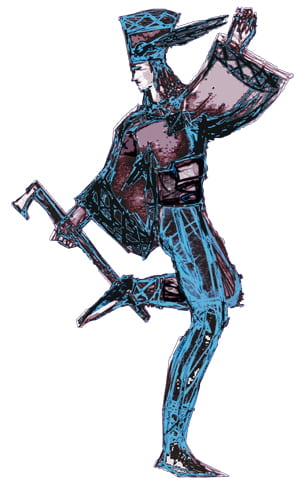 Harnasie is a ballet-pantomime derived from highland folklore. It is a kind of mythological generalization of highland culture—the plot is symbolic, the characters have no names, they are simply “the Girl,” “the Shepherd” and “the Robber.” It tells the story of an expected wedding, with the bride falling in love with a robber shortly before taking her vows. Szymanowski’s work on the ballet lasted eight years and it was completed in 1931. It premiered in Warsaw in 1935, although today it is largely performed in parts, especially the most famous scenes illustrating highland folk culture, i.e. “Taniec góralski” [The Highlanders’ Dance], and “Hala” [In the Mountain Pasture]. Other examples of Podhale folklore are found in Szymanowski’s mazurkas as well as his acclaimed Stabat Mater.
Harnasie is a ballet-pantomime derived from highland folklore. It is a kind of mythological generalization of highland culture—the plot is symbolic, the characters have no names, they are simply “the Girl,” “the Shepherd” and “the Robber.” It tells the story of an expected wedding, with the bride falling in love with a robber shortly before taking her vows. Szymanowski’s work on the ballet lasted eight years and it was completed in 1931. It premiered in Warsaw in 1935, although today it is largely performed in parts, especially the most famous scenes illustrating highland folk culture, i.e. “Taniec góralski” [The Highlanders’ Dance], and “Hala” [In the Mountain Pasture]. Other examples of Podhale folklore are found in Szymanowski’s mazurkas as well as his acclaimed Stabat Mater.
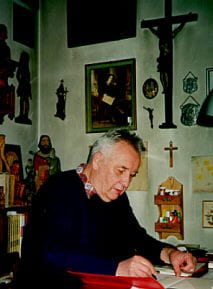
April 1998. Photo by Maja Trochimczyk.
Górecki’s music was also strongly influence by the diverse, local folk culture of his beloved highlands. Of his home region of Silesia he once said: “It is old Polish land [but] there were always three cultures present: Polish, Czech, and German. The folk art, all of the art, had no boundaries.” Górecki’s tutor, the Polish composer Bolesław Szabelski (a former student of Szymanowski’s) was especially influenced by Polish highland folklore.
Organized by the Karol Szymanowski Philharmonic in Kraków, the Polish Embassy in Paris and the Polish Institute in Paris, partners in this concert include Theatre du Chatelet and UNESCO and it is co-financed by the Ministry of Culture and National Heritage of the Republic of Poland. “Karol Szymanowski” is a Flagship Project of the Cultural Program of the Polish Presidency.
[Sources: culture.pl, culture.pl, Harnasie image: imprezy.onet.pl]
Premieres At Miłosz Centennial Concert
The Warsaw Camerata Orchestra (formerly known as the Nowa Orkiestra Kameralna) will present a special concert commemorating the centenary of Czesław Miłosz (1911-2004), one of Poland’s most prominent twentieth century poets and laureate of the 1980 Nobel Prize for Literature. Entitled Muzyczne Pejzaże Czesława Miłosza [The Musical Landscapes of Czesław Miłosz], the concert will be held at the Polish Radio Lutosławski Studio in Warsaw on Sunday, June 26.
The program will feature world premieres of works based on the poetry of Czesław Miłosz. These compositions were commissioned by FNOK from composers Romuald Twardowski – Lituania, Joanna Bruzdowicz (Paderewski Lecturer 2003) – W Warszawie, Jarosław Siwiński – Annalena, Barbara Kaszuba – …znad Zatoki San Francisco, Marek Żebrowski (PMC Director) – Dwa Pejzaże: Obłoki, Bieg, and Ryszard Osada – teMuchi.(Composers are pictured above in preceeding order)
 The performers will include baritone Jarosław Bręk, narrator Grzegorz Damięcki, and the Warsaw Camerata Orchestra, conducted by Paweł Kos-Nowicki. A meeting with the composers at 5:30 p.m. will be followed by a concert at 7 p.m. More information on the orchestra’s website: www.warsawcamerata.pl
The performers will include baritone Jarosław Bręk, narrator Grzegorz Damięcki, and the Warsaw Camerata Orchestra, conducted by Paweł Kos-Nowicki. A meeting with the composers at 5:30 p.m. will be followed by a concert at 7 p.m. More information on the orchestra’s website: www.warsawcamerata.pl
Sunday, June 26, 2011 | 5:30 p.m. Meet the composers, 7:00 p.m. Concert
The Musical Landscapes of Czesław Miłosz
Polish Radio Lutosławski Studio
ul. Modzelewskiego 59, Warsaw
[Sources: Press release, warsawcamerata.pl
R. Panufnik Premiere

dssrox18z-b
On June 29, the World Premiere of a new piece by Roxanna Panufnik—a Polish composer living in the UK—entitled Talinna Missa: Elutants [Tallinn Mass: Dance of Life]will take place in St John’s Church in Tallinn, Estonia. It will be performed by the Tallinn Philharmonic and the combined youth choirs of Tallinn, with soprano soloist Patricia Rozario and conductor Eri Klas.
Text for this mass is in Latin and Estonian, with Estonian texts written by Doris Kareva and Jürgen Rooste. According to the Philharmonic’s website, “Panufnik work has been chosen because of its beauty and message of peace. Elutants is a dialogue between modern and medieval. Based Bernt Notke The Dance of Death, the characters have found themselves with modern equivalents, and now life is a circle dance.”
[Sources: roxannapanufnik.com, filharmoonia.ee]
Premieres At Musica Electronica Nova
The Musica Electronica Nova 2011 Festival was held from May 13-21 in various venues around Wrocław, Poland. Like an atom’s structure, the program for the Festival combined elementary particles placed on the orbits of interpretation, integration and interaction—sound, light, image, motion, space and time met together to create multi-layered works of art using extremely cutting edge computer techniques. Various aesthetics and musical trends—from classical electro-acoustic music to pop, intuitive or alternative music—came together, as fixed sounds mingled with live electronics and live multimedia art. Each hour of the 9-day festival intentionally evoked a specific image of electronic music in the 20th and 21st centuries.
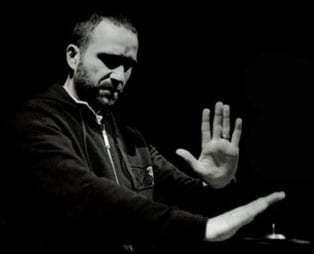 This year’s featured guest, the young French composer Pierre Jodlowski, brought a distinctly French flavor to the proceedings, along with his skills in several fields including music, visual art and installations. Other performers included ensembles included Elzbieta Chojnacka, Daniel Kientzy, Anna Petrini, Agata Zubel, Fabrice Junger, the Mimeo intuition music group and the very popular Sonic Codex Orchestra.
This year’s featured guest, the young French composer Pierre Jodlowski, brought a distinctly French flavor to the proceedings, along with his skills in several fields including music, visual art and installations. Other performers included ensembles included Elzbieta Chojnacka, Daniel Kientzy, Anna Petrini, Agata Zubel, Fabrice Junger, the Mimeo intuition music group and the very popular Sonic Codex Orchestra.
This edition of the MEN Festival included several World Premieres of works by Polish composers. On Sunday May 15, the premieres of Rafał Augustyn‘s Acqua alta and Magdalena Długosz‘s SaxSpiro were performed by saxaphonist Daniel Kientzy and soniste Cornelia Petroiu at the Hall of the Ossolinski National Institute. On Monday May 16, Jakub Sarwas‘s 10′ creation for soprano saxophone, percussion and live electronics was premiered during the Acousmonium 1/2 concert by the combined ensembles of Motus and Syntax. On Wednesday May 18, the Leopoldinum Chamber Orchestra performed Ryszard Osada‘s Trance-formation II for string orchestra and electronics with conductor and violin soloist Ernst Kovacic. On Thursday May 19, Wojciech Blecharz’s -onym for bass flute, bass clarinet, violin, cello, percussion and live electronics was premiered by Ensemble Court Circuit with conductor Jean Deroyer. On Friday May 20, during the “Taste of Sound” concert at Centre Pompidou, Stanisław Krupowicz‘s Koncert komputerowy [Computer concert] was performed by the Wroclaw Philharmonic Symphonic Orchestra with the IRCAM ensemble and Stanisław Krupowicz on computer, led by conductor Jacek Kaspszyk.
In addition to these world premieres by Polish composers, there were also several by foreign composers as well as many Polish premieres. Among the other composers represented at the Festival were: François Bayle, Pierre Boulez, Marek Choloniewski, Denis Dufour, Luc Ferrari, Benjamin de la Fuente, Dobromila Jaskot, Stanislaw Krupowicz, Jerzy Kornowicz, Gyorgi Ligeti, Bruno Mantovani, Tristan Murail, Jean Claude Risset, Daniel Teruggi, Lidia Zielińska and many others.
[Source: musicaelectronicanova.pl]
‘Polska Music’ Project
 “Polska Music” is a new project instigated by the Adam Mickiewicz Institute. The goal to intensify the presentation and increase the popularity of Polish classical music in Europe, with a special focus placed on contemporary music. To this end, the Mickiewicz Institute is providing financial and organizational support to foreign contractors who organize performances of Polish music by outstanding foreign and Polish artists abroad. Polska Music grants are being provided for a variety of events—concerts, festivals, etc.—as well as recordings and multimedia publications.
“Polska Music” is a new project instigated by the Adam Mickiewicz Institute. The goal to intensify the presentation and increase the popularity of Polish classical music in Europe, with a special focus placed on contemporary music. To this end, the Mickiewicz Institute is providing financial and organizational support to foreign contractors who organize performances of Polish music by outstanding foreign and Polish artists abroad. Polska Music grants are being provided for a variety of events—concerts, festivals, etc.—as well as recordings and multimedia publications.
To learn more about this initiative, visit polskamusic.pl, where you can find read biographies of Polish composers, listen to their works and see selected parts of scores of their compositions.
IAM’s partners in this effort are: Polish Music Publishers (PWM), Polish Composers’ Union (ZKP), Polish Music Information Centre (POLMIC), Boosey & Hawkes Publishers, Chester Novello Music Publishers and CD Accord.
[Sources: polskamusic.pl, pwm.com.pl]
New Books For PWM
 Music History, part 4 by musicologist Danuta Gwizdalanka presents an overview of 20th century music and sheds some light on the conditions in which 20th century composers came to live and create. It deals with the problem of music being used as a tool of propaganda by totalitarian regimes. It also shows the revolutionary influence of media on music. The author shows how different our views on music can be depending on our origins. A follow-up to Music History part 3, in which varied compositional techniques were presented and described, this volume presents the social, political and esthetic context of the music of the 20th century.
Music History, part 4 by musicologist Danuta Gwizdalanka presents an overview of 20th century music and sheds some light on the conditions in which 20th century composers came to live and create. It deals with the problem of music being used as a tool of propaganda by totalitarian regimes. It also shows the revolutionary influence of media on music. The author shows how different our views on music can be depending on our origins. A follow-up to Music History part 3, in which varied compositional techniques were presented and described, this volume presents the social, political and esthetic context of the music of the 20th century.
 Flamenco na polskiej scenie [Flamenco on the Polish stage] is the first publication by well known Polish flamenco dancer, choreographer and teacher, Urszula Żebrowska-Kacprzak. It is the result of her many years of experience on the stage as well as her esthetic imagination and artistic creativity. The author gives many ideas how to make a flamenco shows as effective as possible for Polish audiences, as well as an overview of flamenco history, basic forms of the style, and information about accessories and related styles of dance. The book contains excellent information for both beginning flamenco dancers and the more advanced dancer.
Flamenco na polskiej scenie [Flamenco on the Polish stage] is the first publication by well known Polish flamenco dancer, choreographer and teacher, Urszula Żebrowska-Kacprzak. It is the result of her many years of experience on the stage as well as her esthetic imagination and artistic creativity. The author gives many ideas how to make a flamenco shows as effective as possible for Polish audiences, as well as an overview of flamenco history, basic forms of the style, and information about accessories and related styles of dance. The book contains excellent information for both beginning flamenco dancers and the more advanced dancer.
[Source: PWM newsletter, Tranl: SG]
Surpressed Music Index At B&H
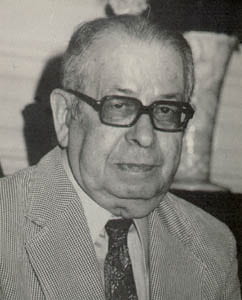 Music by composers who were persecuted, murdered and driven into exile features prominently in the catalogue of Boosey & Hawkes / Bote & Bock music publishers. Created in 2008, the “Suppressed Music” index of the Boosey & Hawkes catalogue is an excellent resource for researchers or performers interested in the music of Polish composers who were persecuted by the Third Reich, such as:
Music by composers who were persecuted, murdered and driven into exile features prominently in the catalogue of Boosey & Hawkes / Bote & Bock music publishers. Created in 2008, the “Suppressed Music” index of the Boosey & Hawkes catalogue is an excellent resource for researchers or performers interested in the music of Polish composers who were persecuted by the Third Reich, such as:
- Szymon Laks (pictured at right)– known for his moving recollection of being part of the orchestra at Auschwitz II, entitled Music of Another World
- Karol Rathaus – Franz Schreker’s favorite pupil
- Wladyslaw Szpilman – his memoirs were featured in the Roman Polanski film, The Pianist
Go to www.boosey.com for more information, or click here to download a PDF document (approx. 165 KB) featuring a comprehensive index of composers and their works. Also, for an interesting article about Szymon Laks’ music at the Terezín Festival of Forbidden Music in the Czech Republic (20-27 June 2010), visit www.boosey.com.
[Source: boosey.com]
New Publisher & Website For Górecki
On May 16, Mikołaj Górecki signed a publishing agreement with Euterpe Publishers in Kraków for 3 of his newer works: Overture for string quartet (2000), Sonata for Piano (2010) and Nocturne for orchestra (2011). Vocal works by Górecki will be published by the end of this year. Euterpe is now Górecki’s 2nd publisher, after Polish Music Editions [PWM].
One of the important points of Górecki’s new publishing agreement was the active promotion of the composer’s works. To this end, Euterpe has created a new website, using the newest technologies to engage audiences and musicians: mikolajgorecki.pl.
[Source: polmic.pl, mikolajgorecki.pl]
New Preisner Website
Polish composer Zbigniew Preisner’s website, www.preisner.com, has been rebuilt and redesigned. It is a non-Flash site and thus can be viewed easily on mobile devices as well as computers. The site features new pages for News, Film Soundtracks and Albums, plus a new photo gallery. Starting on May 16th, the composition Requiem for my friend will be available as a download from music.preisner.com. There’s a choice of six different file formats all available for the complete album or single tracks.
Preisner now also has an official social media presence on www.facebook.com.
[Source: Press release]
Poznań Grand Theatre / Hossa Firing Conflict
The director of the Grand Theatre in Poznan has fired Iwona Hossa, one of the leading Polish sopranos, who was slated for the main roles in Mary Stuart, Ophelia and The Fairy Queen during 2011. According to the theatre, while on sick leave the artist appeared in concerts with Krzysztof Penderecki without informing or getting prior approval from the theatre. The Grand Theatre officials decided to terminate the contract with the singer, citing grave violations of her contract. Ms. Hossa claims she did no wrong and will file a lawsuit against the theatre.
In April this year the artist has notified the theatre of her resignation from the performance in The Fairy Queen, because of her commitments with Krzysztof Penderecki in April and May. The director of the theatre refused her request for the sick leave, claiming it was unjustified.
The soloist maintains that her contract has been terminated illegally, adding, “It has been 15 years since I started working for the Grand Theatre. I feel strongly attached to this place and I hope I will be able to continue working here. The director claims that I was disloyal towards the theatre, which is not true. I have shown many time my loyalty to this place, by among others, filling in frequently for my colleagues in cases of emergency absences.” Ms. Hossa also claims that the director has often shown prejudice towards her, by frequently striking her from roles in the middle of performance preparation.
 Iwona Hossa is one of the leading singers of her generation. She received the Grand Prix and the Gold Medal in the Maria Callas International Vocal Competition in Athens and the Medal of the Young Art for her accomplishments on the opera stage. She has performed with famous conductors such as David Lloyd-Jones, David Agler, Gabriel Chmura and Krzysztof Penderecki. She has also taken part in prestigious festivals, including the Wratislavia Cantans, Warsaw Autumn, Wexford Opera Festival in Ireland, and Rossini Festival in Pesaro, Italy. Her repertoire spans from the Baroque to contemporary and includes many opera, operetta, cantata and oratorio roles.
Iwona Hossa is one of the leading singers of her generation. She received the Grand Prix and the Gold Medal in the Maria Callas International Vocal Competition in Athens and the Medal of the Young Art for her accomplishments on the opera stage. She has performed with famous conductors such as David Lloyd-Jones, David Agler, Gabriel Chmura and Krzysztof Penderecki. She has also taken part in prestigious festivals, including the Wratislavia Cantans, Warsaw Autumn, Wexford Opera Festival in Ireland, and Rossini Festival in Pesaro, Italy. Her repertoire spans from the Baroque to contemporary and includes many opera, operetta, cantata and oratorio roles.
[Source: rmfclassic.pl; Transl: SG/MZ]
Polonia Library In Baltimore
The Polish National Alliance Council 21 in Baltimore, Maryland has announced the re-opening of its Henryk Sienkiewicz Polonia Library. Located on the 2nd floor of the Council’s home at 1626 Eastern Avenue in the historic Fell’s Point neighborhood of Baltimore, the library is open most Saturdays from 2:00 P.M. to 5:00 P.M. A group of dedicated volunteers, including a professional librarian, is now working on establishing an online catalog and on furnishing and decorating the library.
The collection of donated materials, both in Polish and English, is organized in broad categories of Fiction/Literature, Biographies, Language Instruction, Children’s Books, Customs/Songs/Folklore, Polish History, Polish-Jewish History, Polish-American History, Description & Travel, Sienkiewicz’s Works, Visual & Performing Arts, and Religious Books.
Future plans include adding magazine and newspaper subscriptions, creating a pamphlet file, adding more children’s and other books as funds become available, and offering programs such as film screenings and book discussion groups. The library also hopes to eventually connect with the Maryland library community, the Polish Library in Washington, and local schools and colleges.
All are welcome to visit the Henryk Sienkiewicz Polonia Library! Please call 410-925-9684 before your visit, to confirm that the library is open.
[Source: Polish Global Village listserve]
Stojowski Celebration
 For their last concert of the season, the Polish Radio Orchestra in Warsaw will present a celebration of the music of Zygmunt Stojowski on Sunday, June 5. British pianist Jonathan Plowright will serve as soloist in Stojowski’s Symphonic Rhapsody for piano and orchestra. Also on the program are Stojowski’s Symphony in D minor and Liszt’s symphonic poem, Les preludes. Artistic Director Łukasz Borowicz will conduct the Polish Radio Orchestra.
For their last concert of the season, the Polish Radio Orchestra in Warsaw will present a celebration of the music of Zygmunt Stojowski on Sunday, June 5. British pianist Jonathan Plowright will serve as soloist in Stojowski’s Symphonic Rhapsody for piano and orchestra. Also on the program are Stojowski’s Symphony in D minor and Liszt’s symphonic poem, Les preludes. Artistic Director Łukasz Borowicz will conduct the Polish Radio Orchestra.
This concert will be broadcast on Polish Radio Program 2 [Polskie Radio Dwójka] on Sunday, July 12, at 7:00 p.m. Eastern European time or 1:00 p.m. EST in the US. Dwójka is available online at www.polskieradio.pl/8,Dwojka.
[Sources: Herter, polskieradio.pl]
Szpakiewicz Plays For Japan
Polish cellist and USC Thornton alumni Marek Szpakiewicz will perform with fellow alum and PMC performer, pianist Jiayi Shi, at the upcoming “For Japan, We’re United” benefit. They will perform works by Gershwin, Piazzolla, Rachmaninov, and the Japanese piece Furusato [Homeland]. Hosted by KUSC’s Rich Capparela, the event will also feature a special message and footage recorded by KTLA’s Frank Buckley, a benefit auction and a reception.
 Thursday, June 9 | 7:30 – 10:00 p.m.
Thursday, June 9 | 7:30 – 10:00 p.m.
“For Japan, We’re United” benefit concert with Marek Szpakiewicz, cello
Barnsdall Gallery Theatre
4800 Hollywood Blvd, Hollywood, CA
More info: see Facebook event page or call Keiko Mori at 213-446-9210
Suggested admission donation: $15 (tax deductible)
[Source: press release]
Kosinski Plays Paderewski Gala
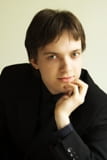 The Paderewski Music Society in Los Angeles presents a Gala concert program—“The Legacy of Paderewski” on Saturday, June 11, 2011. The concert will feature Polish pianist Piotr Kosinski, First Prize Winner of the 2010 Paderewski Int’l Piano Competition in Los Angeles. During the 2010 competition, Mr. Kosinski triumphed over pianists representing 14 countries. This concert will be his West Coast debut as part of an American tour. Also on the program: celebrated actress Jane Kaczmarek, Paul Jan Zdunek as Paderewski, and a nine-minute documentary in which several luminaries recollect the Great Artist and Statesman, including the appearance of Ignacy Paderewski himself.
The Paderewski Music Society in Los Angeles presents a Gala concert program—“The Legacy of Paderewski” on Saturday, June 11, 2011. The concert will feature Polish pianist Piotr Kosinski, First Prize Winner of the 2010 Paderewski Int’l Piano Competition in Los Angeles. During the 2010 competition, Mr. Kosinski triumphed over pianists representing 14 countries. This concert will be his West Coast debut as part of an American tour. Also on the program: celebrated actress Jane Kaczmarek, Paul Jan Zdunek as Paderewski, and a nine-minute documentary in which several luminaries recollect the Great Artist and Statesman, including the appearance of Ignacy Paderewski himself.
Saturday, June 11, 2011 at 6:00 PM
The Legacy of Paderewski featuring Piotr Kosinski
Zipper Hall – Colburn School, Conservatory of Music
200 S. Grand Ave., Los Angeles, between 2nd and 3rd Streets,
Information: call 818-456-7742 or 818-429-6688, or visit www.colburnschool.edu
Tickets: $30 (including reception)
- Tickets purchased in advance will be available at a special Will Call pick up window with little to no waiting time
- Checks: must be payable to Paderewski Music Society and received by June 8, 2011 at: 8504 Independence Avenue, Canoga Park, CA 91304
- PayPal: paderewski.music.society@ijpaderewski.org
[Source: press release]
Górecki Performances In June
Wednesday, June 1, 2011 | 7:30 PM
Henryk Mikołaj Górecki: String Quartet, No. 1 “Already it is Dusk,” Op. 62 (1988)
Performer: Diller-Quaile String Quartet
Venue: Diller-Quaile School of Music, New York, NY, USA
Information & tickets: www.dqsq.com/concerts.html
Saturday, Jun 4, 2011 | 07:30 pm
Henryk Mikołaj Górecki: String Quartet No. 2 “Quasi una fantasia,” Op. 64 (1992)
Ballet Title: Sie war schwarz [She was black]
Creator/Performer: Mats Ek, choreographer / Dresden SemperOper Ballett
Venue: Semperoper, Dresden, Germany
Information: www.semperoper.de
This performance is part of the “3 Colours Green” ballet program—previous performances of this program were held on May 20, 24 and 27. According to the Semperoper website:
Mats Ek‘s choreography derives its name from a joke from the Swedish actor, author, composer and director Beppe Wolgers’ programme: “I dreamed of God last night.” – “And what did he look like?” – “She was black.” The music is Henryk Górecki’s string quartet no. 2 “Quasi una fantasia” dedicated to the black Madonna and based on traditional music from Tuva. Fittings and light come from Ek’s long-term companions Peder Freiij and Ellen Ruge. There are only a few fragments on the empty stage – a stairway leading to nowhere, a table, a wall piece – a strange landscape which shows the signs of the beginning of disintegration. The light concept reinforces and exaggerates the desolate atmosphere.
[Source: boosey.com]
Gatonska Concerts
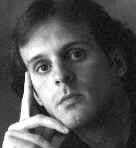 The music of Polish-American composer Michael Gatonska will be featured in several concerts during the month of June.
The music of Polish-American composer Michael Gatonska will be featured in several concerts during the month of June.
Tuesday, June 7 | 7 pm
On Connecticut Naturalism
Jeffrey Krieger, electric cello; Greig Shearer, flute; Gary Chapman, piano
Hartford Symphony Orchestra Musical Dialogues Series
The Studio at Billings Forge, 563 Broad St, Hartford, CT
Free Admission
(5:30 Artist Meet & Greet at Firebox Restaurant with cellist Jeffrey Krieger and composer Michael Gatonska).
Program: Le Merle Noire [The Blackbird] by Oliver Messiaen, On Connecticut Naturalism by Michael Gatonska, Vox Balanae [Voice of the Whale] by George Crumb
On Connecticut Naturalism celebrates the beauty of Connecticut’s natural resources through a concert of contemporary masterworks performed on electric cello, amplified flute and prepared piano. Gatonska’s piece of the same title originates from notes taken while “in the field” hiking and bicycling through Connecticut.
Friday, June 10 | 8 am
Canons for Commuters
Jeffrey Krieger, electric cello
City Place Atrium, 185 Asylum Street, Hartford, CT
Free Admission
E-cellist Jeff Krieger will perform Gatonska’s Music stretched into deep places like a thread in water…,a composition that explores enclosed architectural space with soundings and the morning rush hour. Also on the program: compositions by Sarah Hopkins, James Sellars, Jonathan Harvey, Domenico Gabrielli, Georg Phillip Telemann and Carlos Rodriguez.
Wednesday, June 15 | 8 pm
Bargemusic Concerts
Kathleen Supove, piano
Fulton Ferry Landing, Brooklyn, NY 11201
718.624.2083
$35 ($30 Senior, $15 Student)
Program: Julia Wolfe – Compassion (2001), Lainie Fefferman – Barnacles (2010,*NY premiere), Alvin Curran – Inner Cities (selections) (1992-2011), Michael Gatonska – A Shaking of the Pumpkin (2007); Frederic Rzewski – Winnsboro Cotton Mill Blues (1978)
Monday, June 27 | 6 pm
Ossia Chamber Players concert
Ossia Chamber Players w/ Theo Bleckmann, singer and Kono Michi, violin
(Le) Poisson Rouge, 158 Bleecker Street, New York, NY
ADV: $15 DAY: $20
Music by Michael Gatonska, Daniel Wohl, Rubin Kodheli and Hannah Lash.
[Sources: Press release, xenarts.com]
Lowiczanie At SF Dance Festival
On June 25th at 3pm, Lowiczanie Polish Folk Ensemble will perform in the 33rd Annual San Francisco Ethnic Dance Festival. Their program features a variety of dances set to well-known and beloved folk melodies from Eastern Poland and the territories of current-day Belarus and Ukraine, influenced by the myriad of cultures that inhabit the area. This year’s Festival presents a record 750 artists representing cultures from all around the world.For tickets and a full line-up of performance schedule, descriptions and details, visit www.sfethnicdancefestival.org.
Saturday, June 25, 2011 | 3pm
Lowiczanie at the 33rd Annual San Francisco Ethnic Dance Festival
Yerba Buena Center for the Arts – Novellus Theater
701 Mission St., San Francisco, CA 94103
Tickets: $18 – $58 (also, subscriber and group discounts are available, and kids 12 and under receive half-price admission for all matinées)
[Source: Press release]
Chopin Poem
 Author Sharon Chmielarz has new book of poems entitled The Sky is Great, The Sky is Blue, which includes the poem “Chopin: Apples.” This poem is available for preview on the blog writingpolishdiaspora.blogspot.com. The Sky is Great, The Sky is Blue is available for purchase from Whistling Shade Press.
Author Sharon Chmielarz has new book of poems entitled The Sky is Great, The Sky is Blue, which includes the poem “Chopin: Apples.” This poem is available for preview on the blog writingpolishdiaspora.blogspot.com. The Sky is Great, The Sky is Blue is available for purchase from Whistling Shade Press.
[Source: writingpolishdiaspora.blogspot.com]
Awards
Fryderyki 2011
On May 9, 2011 in the Fabryka Trzciny Arts Center, Poland’s Phonographic Academy presented the annual Fryderyk Awards for achievement in recorded music. This award is the Polish equivalent of the American Grammys. The Fryderyki are awarded in the categories of pop, jazz and classical music. The 2011 winners of the Golden Fryderyk for lifetime achievement were Wojciech Mlynarski (Pop), Vladimir Nahorny (Jazz) and Jerzy Maksymiuk (Classical).
Below are all of the winners in the Classical music category:
ALBUM OF THE YEAR – Choral music & Oratorio:
Laudate Dominum. Chór Katedry Warszawsko-Praskiej “Musica Sacra.” Musica Sacra Edition
Composer: Zoltan Kodaly, Benjamin Britten, John Rutter, Idzi O. Mański, Irena Pfeiffer, Stanisław Kwiatkowski, Kazimierz Wiłkomirski, Stanisław Moryto, Marian Borkowski, Łukasz Farcinkiewicz, Paweł Łukaszewski
Performers: Chór Katedry Warszawsko-Praskiej Musica Sacra, Malgorzata Wrzosek, Sylwia Łańcucka, Łukasz Farcinkiewicz, Joanna Łukaszewska, Anna Maria Krawczykiewicz, Grzegorz Cessak, Andrzej Klepacki, Maria Muszyńska, Sandra Kopijkowska, Marcin Łukaszewski
Conductor/Artistic Director: Paweł Łukaszewski
Recording Director: Andrzej Brzoska
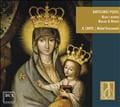 ALBUM OF THE YEAR – Early music & Baroque:
ALBUM OF THE YEAR – Early music & Baroque:
Bartłomiej Pękiel – Missa Brevis, Missa Pulcherrima, Motety. Il Canto. DUX
Composer: Bartłomiej Pękiel
Performers: Il Canto
Conductor/Artistic Director: Michał Straszewski
Recording Director: Małgorzata Polańska, Lech Tołwiński, Marcin Domżał
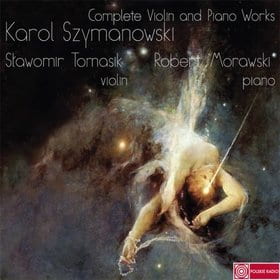 ALBUM OF THE YEAR – Chamber music:
ALBUM OF THE YEAR – Chamber music:
Karol Szymanowski – Complete Violin-Piano Works. Sławomir Tomasik, Robert Morawski. FFV Records
Composer: Karol Szymanowski
Performers: Sławomir Tomasik – violin, Robert Morawski – piano
Artistic Director: Sławomir Tomasik
Recording Director: Witold Osiński, Klementyna Walczyna
ALBUM OF THE YEAR – Orchestral and concert music:
Witold Lutosławski, Opera omnia Vol. 2 – Symphonies No. 2&4. CD Accord
Composer: Witold Lutosławski
Performers: NFM Wrocław Philharmonic Orchestra
Conductor/Artistic Director: Jacek Kaspszyk
Recording Director: Andrzej Sasin, Aleksandra Nagórko
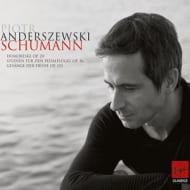 ALBUM OF THE YEAR – Solo recital:
ALBUM OF THE YEAR – Solo recital:
Schumann – Piano Works. Piotr Anderszewski. EMI MUSIC
Composer: Robert Schumann
Performers: Piotr Anderszewski – piano
Recording Director: Andrzej Sasin, Aleksandra Nagórko
ALBUM OF THE YEAR – Contemporary music:
Maciejewski – Requiem Missa Pro Defunctis. Polskie Nagrania “Muza”
Composer: Roman Maciejewski
Performers: Zdzisława Donat, Jadwiga Rappé, Jerzy Knetig, Janusz Niziołek, Choir and Orchestra of the National Philharmonic in Warsaw
Conductor/Artistic Director: Tadeusz Strugała, Henryk Wojnarowski – choir director
Recording Director: Andrzej Lupa, Andrzej Sasin
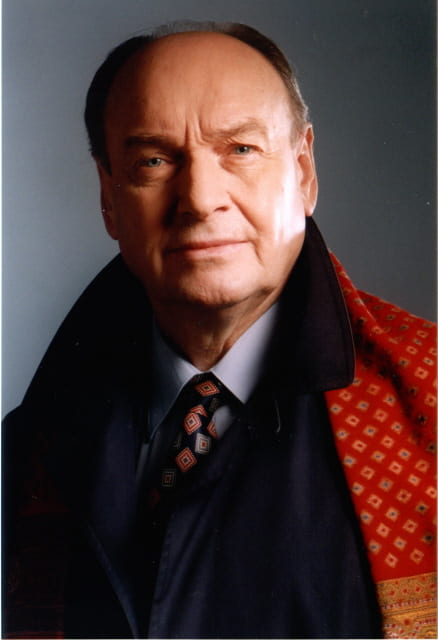 BEST DEBUT ALBUM:
BEST DEBUT ALBUM:
Wrocławska Orkiestra Barokowa (album: “Koželuh, Rejcha, Vořišek – Symphonies)
COMPOSER OF THE YEAR:
Marian Borkowski (pictured at right)
 BEST RECORDING OF POLISH MUSIC:
BEST RECORDING OF POLISH MUSIC:
National Chopin Edition, vol. 1 (Super Audio CD & CD formats). BeArTon
Composer: Fryderyk Chopin
Performers: Janusz Olejniczak, piano; AUKSO Chamber Orchestra
Conductor/Artistic Director: Marek Moś
Recording Director: Julita Emanuiłow, Beata Jankowska-Burzyńska
All of the nominees and winners in all categories can be found at: zpav.pl.
[Source: zpav.pl, pwm.com.pl; Photo: galafryderyk.pl]
2011 ZKP Prize Winners
The winners of the 2011 Polish Composers’ Union Prize [Nagroda ZKP] have been announced. The 2011 laureates of the ZKP Award are:
- Marta Ptaszyńska (pictured at left)—composer and former Paderewski Lecturer (2005)—in recognition of her contribution to the dissemination of Polish musical culture in the world and for outstanding compositions
- Andrzej Rakowski (pictured at center)—accoustician—for his decades of dedication to raising the level of musical education in Poland and for integrating an inclusive attitude into Polish musical culture.
- Zbigniew Skowron (pictured at right)—musicologist—for his work as editor and translator of his new book Myśl muzyczna Jeana-Jacquesa Rousseau [The musical ideas of Jean-Jacques Rousseau], which “fills an acute gap in Polish awareness of world culture”
The awards ceremony will take place during the 54th Warsaw Autumn Festival in September 2011.
[Sources: pwm.com.pl, PAP via czytadelko.com.pl]
Auguścik Wins “Outstanding Pole Abroad”
 On Saturday, May 7 critically acclaimed jazz musician Grażyna Auguścik received the Outstanding Pole Abroad Award from the “Teraz Polska” Foundation at a special ceremony at the Consulate General of Republic of Poland in Chicago. The Award was given to Ms. Auguscik by special guests Longin Komołowski – president of Wspolnota Polska Foundation, and Mr. Krzysztof Przybył – president of Polskie Godło Promocyjne Foundation “Teraz Polska”.
On Saturday, May 7 critically acclaimed jazz musician Grażyna Auguścik received the Outstanding Pole Abroad Award from the “Teraz Polska” Foundation at a special ceremony at the Consulate General of Republic of Poland in Chicago. The Award was given to Ms. Auguscik by special guests Longin Komołowski – president of Wspolnota Polska Foundation, and Mr. Krzysztof Przybył – president of Polskie Godło Promocyjne Foundation “Teraz Polska”.
One of the most intriguing contemporary vocalists on today’s international jazz scene who was born in Poland and lives permanently in the United States, Grażyna Auguścik has been the center of attention lately. Read about Grażyna Auguścik’s “Chopin 200: World Sound” concert in Chicago’s Millennium Park on July 25, 2010 in the New York Timesand the inclusion of this concert on Howard Reich’s “10 best jazz concerts” list for theChicago Tribune.
The main purpose of the Contest is to create a positive image of Poles living around the world, to highlight the success they have achieved outside of their native country, and to demonstrate and reward their accomplishments.
[Source: press release via gmarecords.com; Photo: Bartosz Kasza/PANGEA Alliance]
Festivals
1st HMG Festival & Ślęczek Premiere
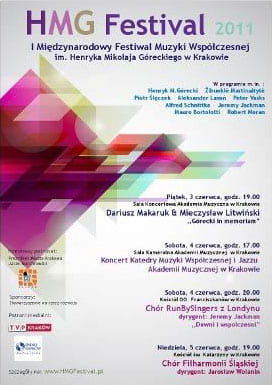 New international and Polish music will be performed during the First International H.M. Górecki Festival of Contemporary Music [HMG Festival]. During this event, concert programs place special emphasis on the influence of Henryk Mikołaj Górecki and other Polish composers on musical culture around the world.
New international and Polish music will be performed during the First International H.M. Górecki Festival of Contemporary Music [HMG Festival]. During this event, concert programs place special emphasis on the influence of Henryk Mikołaj Górecki and other Polish composers on musical culture around the world.
The Festival will feature the premiere of Unica mea est Salomea (2011) for mixed choir a cappella by young Polish composer Piotr Ślęczek, a composition honoring the 800th anniversary of the birth of the Blessed Salome. Other composers to be performed during the Festival include: Henryk Mikołaj Górecki Aleksander Lasoń, Žibuokle Martinaityte, Pēteris Vasks, Alfred Schnittke, Arnold Schönberg, Alban Berg, and Anton Webern.
3 June 2011, 7pm
Górecki in memoriam – electroacoustic concert
Dariusz Makaruk & Mieczysław Litwiński
Academy of Music in Kraków – Concert Hall
4 June 2011, 5pm
Concert by the Department of Contemporary Music and Jazz
Academy of Music in Kraków – Concert Hall
4 June 2011, 8pm
Early and Contemporary – featuring Ślęczek premiere
RBS Choir of London, Jeremy Jackman – conductor
Franciscan Basilica in Kraków
5 June 2011, 6pm
The Silesian Philharmonic Choir, Jarosław Wolanin – conductor
St Catherine’s Church in Kraków
[Sources: pwm.com.pl, www.cracow.travel, hmgfestival.pl, piotrsleczek.com]
Gaude Mater Festival
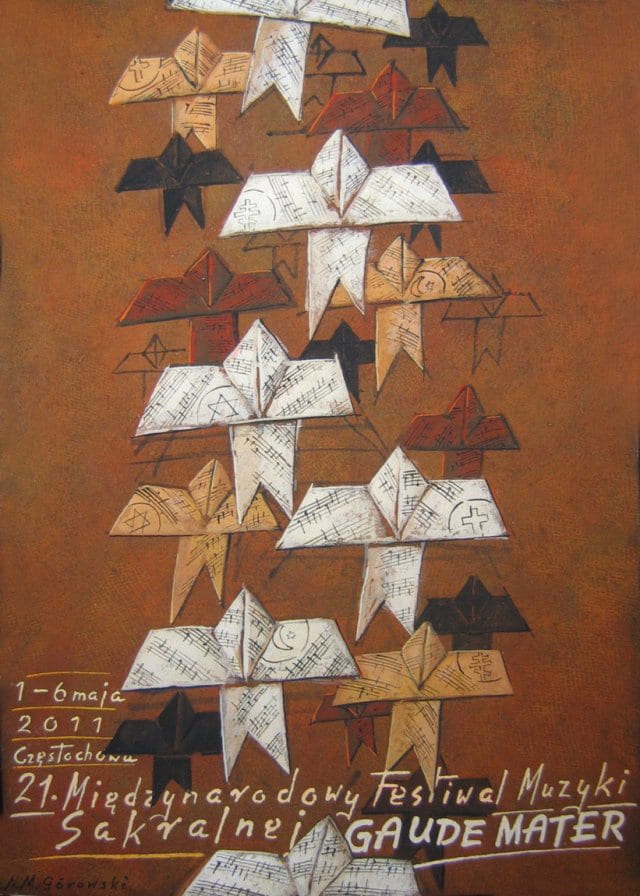 The Gaude Mater International Festival of Sacred Music, organized in Częstochowa, Poland for 20 years, is a musical showcase of the city and the region. This year’s edition was held from May 1-6, 2011. Since its very beginning, its main aim is presentation of the music of the three largest monotheistic religions: Christianity, Judaism and Islam. Thanks to the intercultural dialogue and recognition of the beauty of music from different parts of the world that is encouraged by the Festival, listeners open their minds to other denominations and learn tolerance.
The Gaude Mater International Festival of Sacred Music, organized in Częstochowa, Poland for 20 years, is a musical showcase of the city and the region. This year’s edition was held from May 1-6, 2011. Since its very beginning, its main aim is presentation of the music of the three largest monotheistic religions: Christianity, Judaism and Islam. Thanks to the intercultural dialogue and recognition of the beauty of music from different parts of the world that is encouraged by the Festival, listeners open their minds to other denominations and learn tolerance.
The second important mission of the Festival is the promotion of Polish music and Polish composers. Each year’s program includes premieres of pieces commissioned by the Festival, which has led to more than 200 premieres within 20 years. Each year a composer receives a request for a new liturgical mass, which is then performed during the Liturgical Inauguration of the Festival—this year’s Inaugural concert featured the Polish premiere of Paweł Łukaszewski’s Missa de Maria a Magdala (Missa bremgartensis), a piece that was in fact originally commissioned by the Kulturinsel Bremgarten in Switzerland (read more in the July 2010 Newsletter). It was performed on May 2, 2011 by the Częstochowa Philharmonic and the Musica Sacra Choir of the Warsaw-Praga Cathedral, with Swiss conductor Marco Castellini and soloists Anna Mikołajczyk-Niewiedział – soprano, Jarosław Bręk – baritone and Jan Bokszczanin – organ.
Also, together with the Musica Sacra Institute in Warsaw, the Gaude Mater Festival organizes the Musica Sacra International Composers Competition, honoring the best sacred piece with Latin text for a mixed a cappella choir. Read about Musica Sacra 2011 in the March 2011 Newsletter. This year’s winner—Hic est discipulus ille by Daniel J. Knaggs (USA)—was premiered at the Gaude Mater Festival on May 3, 2011, during a concert held “In commemoration of Henryk Mikołaj Górecki” and performed by Polish Chamber Choir Schola Cantorum Gedanensis, Jan Łukaszewski – conductor.
As well as Polish musicians, this year’s Festival also included many performers from abroad: the King’s Singers (UK), Black Voices (UK), Rustavi Ensemble (Georgia), Ensemble La Fenice (France), countertenor Andreas Scholl (Germany), violinist Sandor Javorkai (Hungary), cellist Adam Javorkai (Hungary), and the Morphing Chamber Orchestra (Austria). In addition to concerts, the Festival always includes several interdisciplinary events, such as art exhibitions, theatre and ballet spectacles, scientific sessions and seminars and “Etno*c” [ethnic night]. 2011 was no exception, featuring such events as scientific seminars exploring the “Spirituality of modern art” and “The Gregorian Cathedral,” a musicological conference on the subject of “Franciszek Perneckher – 18th century conductor of Jasna Góra’s ensemble,” an art exhibition featuring the paintings and drawings of Aldona Mickiewicz, and a performance by the Henryk Tomaszewski Pantomime Theatre from Wrocław.
The Festival concluded with Gustav Mahler’s Symphony No. 8 in E flat. This monumental performance brought together the combined orchestral forces of the Białystok Symphony and the Częstochowa Philharmonic, the combined voices of the Podlasie Opera and Philharmonic Choir, the Cardinal Stefan Wyszyński’s University Choir and the Pueri Claromontani Jasna Gora Choir of Men and Boys, and the following soloists: Wioletta Chodowicz – soprano I, Agnieszka Piass – soprano II, Marta Boberska – soprano III, Katarzyna Suska – alto I, Elżbieta Wróblewska – alto II, Dariusz Pietrzykowski – tenor, Zenon Kowalski – baritone and Grzegorz Szostak – bass, with conductor Jerzy Swoboda at the healm.
For a full program of the Festival, visit www.gaudemater.pl.
[Sources: pwm.com.pl , gaudemater.pl, Photo: Leszek Pilichowski]
Codes Festival
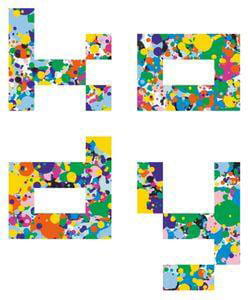 The Codes [Kody] Festival of Traditional and Avant-garde Music is a new festival on Lublin’s cultural map. Inaugurated in May 2009, the Festival is an international event devoted to the idea of combining the archaic and the new in music. The festival provides a global opportunity for excellent contemporary music composers and creators of avant-garde jazz to meet traditional musicians and artists reconstructing old music. The Festival includes concerts and premieres of music projects by recognized artists, as well as talented young musicians and composers. Festival commissioner Jerzy Kornowicz is himself a Lublin-born composer of contemporary music and the president of Polish Composers’ Union [ZKP].
The Codes [Kody] Festival of Traditional and Avant-garde Music is a new festival on Lublin’s cultural map. Inaugurated in May 2009, the Festival is an international event devoted to the idea of combining the archaic and the new in music. The festival provides a global opportunity for excellent contemporary music composers and creators of avant-garde jazz to meet traditional musicians and artists reconstructing old music. The Festival includes concerts and premieres of music projects by recognized artists, as well as talented young musicians and composers. Festival commissioner Jerzy Kornowicz is himself a Lublin-born composer of contemporary music and the president of Polish Composers’ Union [ZKP].
This year’s 3rd edition of the Festival (May 15 – 22) asks what is the link between the young modernist Jagoda Szmytka with the Spring’s ritual known as “konopielka,” or between such different cultural units of improvisation of Iva Bittova and Leszek Możdżer, the sound resources of the jazz pianist Joanna Duda and the musical experience of Ewa Grochowska – pupil of the outstanding traditional violinist Jan Gaca, and the spirit of traditional Lithuanian song reconstructor Rytis Ambrazevicius and the musical language of Antanas Kucińskas – a composer who uses sampling, looping and scratching … The answers to these questions lead to stories about human beings which are told at Codes.
[Source: codes-festival.com]
Performances
Górecki’s 3rd at LA Phil
by Krysta Close
 On May 26, 28 and 29, the Los Angeles Philharmonic performed the Symphony No. 3 “Symphony of Sorrowful Songs,” Op. 36 (1976) of the late Polish composer Henryk Mikołaj Górecki. Soprano soloist for this lush and deeply moving piece was Jessica Rivera, a regular of LA.’s opera and concert scene. The Górecki was paired with Johannes Brahms’ Symphony No. 3 in F major, Op. 90, as a part of the ongoing “Brahms Unbound” series that the Philharmonic is hosting at Walt Disney Concert Hall from May 5 to June 5, 2011.
On May 26, 28 and 29, the Los Angeles Philharmonic performed the Symphony No. 3 “Symphony of Sorrowful Songs,” Op. 36 (1976) of the late Polish composer Henryk Mikołaj Górecki. Soprano soloist for this lush and deeply moving piece was Jessica Rivera, a regular of LA.’s opera and concert scene. The Górecki was paired with Johannes Brahms’ Symphony No. 3 in F major, Op. 90, as a part of the ongoing “Brahms Unbound” series that the Philharmonic is hosting at Walt Disney Concert Hall from May 5 to June 5, 2011.
Your reviewer attended the final performance on Sunday, May 29 at 2 p.m., and conductor and L.A. Phil Music Director Gustavo Dudamel began the afternoon with a congenial discussion of the program before us. Dudamel’s respect for and enjoyment of Brahms was unabashedly evident as he effortlessly engaged the audience for over 10 minutes. Drawing an audible laugh when he referred to Brahms’ 3rd as “a big piece of cheese between the 2nd and the 4th,” he assured us that the cheese was not all fat.
This sense of enjoyment and humor came through in the performance of the Brahms. Conducting without a score, Dudamel seemed completely at home and, as orchestra and maestro followed each other attentively, it was clear that the ensemble had become quite comfortable in this ‘unbound’ world of Brahms. The violas in particular took command of the music; the beauty of their tone soared while at the same time they provided a solid and luscious rhythmic foundation for their colleagues, especially the soloists among the woodwinds and brass. As they transitioned into the third movement, the orchestra seemed to coalesce into a seamlessly lyrical body of sound. Whereas in movements I and II it had felt that each section was playing superbly unto itself, by the poco allegretto, the melodic line was being passed from section to section fluidly and without hesitation, topped off by gorgeous solos from the French horn and oboe.
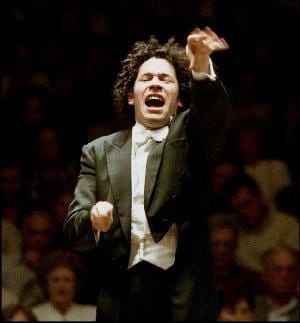 This concert was, due to several mishaps of fate, my first opportunity to experience L.A.’s young rockstar of a conductor in person, and Dudamel did not disappoint. Given the palpable buzz around town and the splashy billboards exhorting our city’s new “Pasión Gustavo,” however, I was pleasantly surprised by his rather restrained presence on the podium. He displayed a beautiful economy of movement in his conducting, seeming to be both totally engaged in the music and yet saving up his energy for his inevitable explosive moments of ‘pasión.’ By movement IV of the Brahms, however, his restraint waned—the lively rhythmic pulse of the allegro became evident throughout his entire body and the maestro led his orchestra as though they were partners in an intricate dance.
This concert was, due to several mishaps of fate, my first opportunity to experience L.A.’s young rockstar of a conductor in person, and Dudamel did not disappoint. Given the palpable buzz around town and the splashy billboards exhorting our city’s new “Pasión Gustavo,” however, I was pleasantly surprised by his rather restrained presence on the podium. He displayed a beautiful economy of movement in his conducting, seeming to be both totally engaged in the music and yet saving up his energy for his inevitable explosive moments of ‘pasión.’ By movement IV of the Brahms, however, his restraint waned—the lively rhythmic pulse of the allegro became evident throughout his entire body and the maestro led his orchestra as though they were partners in an intricate dance.
The late choice to move Górecki’s 3rd to the second half of the program, which was announced from the stage and by a program insert, was clearly made not only because of the work’s more subdued tone, but also for technical reasons: the lights on stage and in the house were significantly lower after intermission than at the outset of the concert. This lighting effect, in combination with the placement of soprano soloist Jessica Rivera at center stage above the conductor, gave the impression that, when she rose up from her chair into the spotlight during her solos, she was merging with or even creating a beacon of light. An apt visual image to create given the mournful yet transcendent nature of the work’s lyrics, which juxtapose a 15th century lamentation (movement I), the writings of a young female prisoner on a Gestapo prison cell wall in Zakopane (movement II), and the text of a folk song from the Opole region.
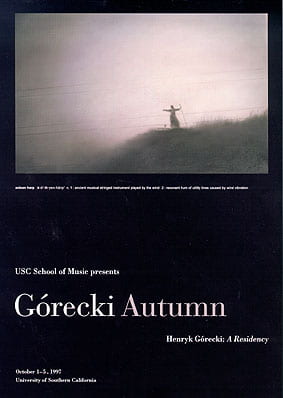
It is important to note that Górecki’s 3rd Symphony was not originally on this program—it replaced the premiere of the Percussion Concerto of Peter Lieberson, whose ill health and subsequent passing prevented him from finishing the piece.This effect of this substitution was evident in the fact that the Górecki did not have the same lived-in ease of the Brahms. The opening passage, which begins almost inaudibly in the low basses and is key to the organic and expansive build of the entire canonic first movement, felt rushed. I must admit that I am steeped in Górecki’s own interpretation of the piece, as performed during his Górecki Autumn residency at USC in October 1997, when the composer squeezed almost 10 more minutes out of his Symphony than other conductors have attempted. Yet the L.A. Phil’s pace on May 29 was hurried enough to make me wonder if they were a) worried about losing audience members that had perhaps paid to hear a different piece or b) themselves bored with what Dudamel referred to at the beginning as Górecki’s “ultra-super minimalism” that made the listener sometimes think “oh my God—this will never stop.”
However, the ensemble soon settled into a tempo and mood more reflective of one of Dudamel’s other phrases summarizing the work: “a delicious pain.” Conducting without a baton—but this time with a score—there was an intimacy in Dudamel’s gentle gestures, which extended out through each finger and coaxed a warm, round tone out of the orchestra. Underneath that warmth was a smoldering energy that could be detected most clearly again in the bedrock of the viola section.
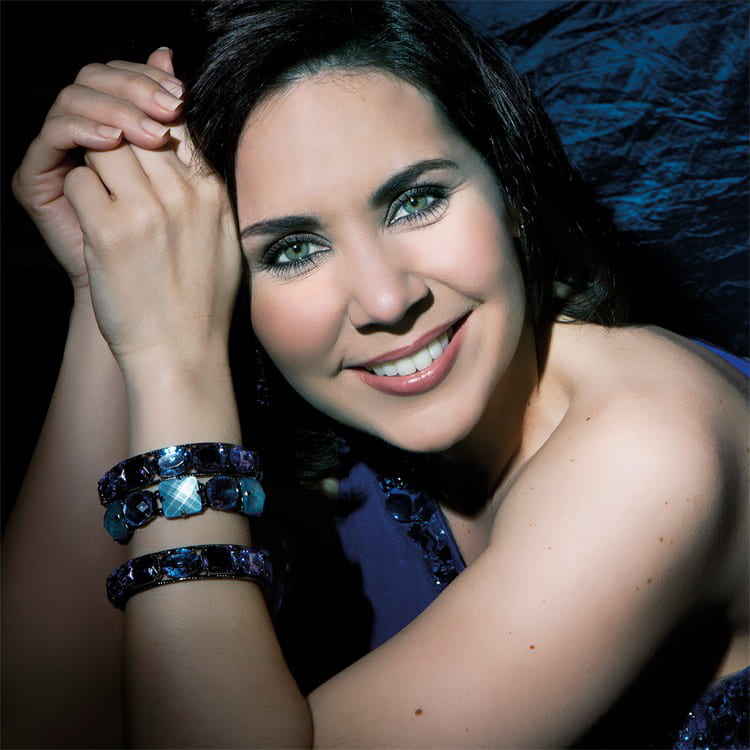 The soprano solos, which weave in and out of the orchestral texture, were sung with great passion by Rivera (pictured at left), although at times the drive of her delivery was masked by her somewhat muddy Polish diction that was easily drowned out by the orchestra. There were also moments where she seemed to lack the seemingly endless breath support that is required for Górecki’s incredibly expansive and organic vocal lines and the intensely mournful nature of the subject matter. In her defense, however, any singer would be greatly challenged to encompass the contrasting characters of earth mother and frightened young girl that are evoked, sometimes simultaneously, by this piece.
The soprano solos, which weave in and out of the orchestral texture, were sung with great passion by Rivera (pictured at left), although at times the drive of her delivery was masked by her somewhat muddy Polish diction that was easily drowned out by the orchestra. There were also moments where she seemed to lack the seemingly endless breath support that is required for Górecki’s incredibly expansive and organic vocal lines and the intensely mournful nature of the subject matter. In her defense, however, any singer would be greatly challenged to encompass the contrasting characters of earth mother and frightened young girl that are evoked, sometimes simultaneously, by this piece.
As we reached the transcendent climax of movement III—lento (cantabile, semplice)—singer and orchestra hit their zenith as well. John Henken described this piece in the program notes as “blossoming into affirmative radiance,” and Rivera’s voice likewise opened like a flower in the final movement, offering the audience a new and more shimmering color. Unfortunately, as Rivera’s final notes faded away, the orchestra seemed to return to the bored minimalism I detected in the opening, switching from transcendent to mechanical as if they had realized they were almost to the finish line. But this momentary transgression could not undo the loveliness of the whole, and I was reminded again of Dudamel’s earlier sentiment regarding the composers who had recently passed, both Górecki and Lieberson—“on this Memorial Day weekend, it’s good to remember.”
The “Symphony of Sorrowful Songs” somehow sublimely encompasses the range of emotions that we humans are capable of during experiences of loss. It was only appropriate that the piece ended with the stage and house in complete darkness, allowing for a brief moment of silent reflection between music and applause—a fitting lighting effect to end an excellent program.
Krysta Close has been Editor of the Polish Music Newsletter since 2003. She graduated from USC’s Thornton School of Music with a Bachelor’s degree in Vocal Arts and from USC’s Annenberg School of Communications and Journalism with a Master’s degree in Public Diplomacy.
[Sources: Program notes, laphil.com, facebook.com]
OMN Performs In Beijing
The New Music Orchestra [Orkiestra Muzyki Nowej, or OMN] performed at the prestigious Beijing Modern Music Festival on May 23 under the leadership of the conductor Szymon Bywalec. Organized by the Adam Mickiewicz Institute, the concert was held in the Concert Hall of the Central Conservatory of Music.
 The artists performed works of George Crumb – Vox Balaenae and Tristan Murail – Treize couleurs du soleil couchant, as well as contemporary Chinese composers, Jia Daqun – Three Images from the Washing Painting and Yu Pengfei – The Late Tang Dynasty. The program also included pieces composed by outstanding Polish composers Jakub Tomasz Opałka – Advection and Marcin Rupociński – Latent Image, selected especially for this occasion.
The artists performed works of George Crumb – Vox Balaenae and Tristan Murail – Treize couleurs du soleil couchant, as well as contemporary Chinese composers, Jia Daqun – Three Images from the Washing Painting and Yu Pengfei – The Late Tang Dynasty. The program also included pieces composed by outstanding Polish composers Jakub Tomasz Opałka – Advection and Marcin Rupociński – Latent Image, selected especially for this occasion.
Orkiestra Muzyki Nowej was founded in 1996 from among the students of the Karol Szymanowski Music Academy in Katowice, on the initiative of the composer Aleksander Lasoń. Its principal goal is the promotion of new music and the classical works of the 20th century. The orchestra is now made up of graduates and members of staff of the Music Academy in Katowice.
On the next day, May 24, the Beijing Modern Music Festival hosted a concert of the quintet Lasoń Ensemble – Mikolov City Chamber Players, made up of the OMN members. The program consisted of works by Polish composers Karol Szymanowski, Grażyna Bacewicz and Aleksander Lasoń.
[Sources: azja.iam.pl, bmmf.org.cn, omn.art.pl]
Elettrovoce Sings Lutosławski
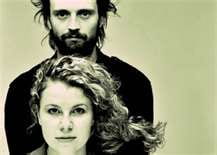 “Stains on the Sun. El Derwid” [Plamy na słońcu. El-Derwid] is the title of a concert of cabaret songs by Witold Lutosławski, who at the time of their composition was using the pseudonym Derwid. On May 29 2011 the Elettrovoce Duo—Agata Zubel (vocal) and Cezary Duchnowski (piano, computer)—performed those works at the Ludwik Solski Academy for the Dramatic Arts in Krakow. They were accompanied by cellist Andrzej Bauer.
“Stains on the Sun. El Derwid” [Plamy na słońcu. El-Derwid] is the title of a concert of cabaret songs by Witold Lutosławski, who at the time of their composition was using the pseudonym Derwid. On May 29 2011 the Elettrovoce Duo—Agata Zubel (vocal) and Cezary Duchnowski (piano, computer)—performed those works at the Ludwik Solski Academy for the Dramatic Arts in Krakow. They were accompanied by cellist Andrzej Bauer.
The program consisted of the following songs by Witold Lutoslawski: Cyrk jedzie [The circus is coming] – text by Tadeausz Urgacz, Jeden przystanek dalej [One more stop] – text by Adam Hosper, Z lat dziecinnych [From childhood] – text by Jerzy Miller, Warszawski dorozkarz [Warsaw cabbie] – text by Jerzy Miller, Nie oczekuje dziś nikogo [I am not waiting for anyone today] – text by Zbigniew Kaszkur and Zbigniew Zapert, Daleka podróz [A long journey] – text byTadeusz Urgacz and Miroslaw Lebkowski, Plamy na slońcu [Stains on the sun] – text by Jerzy Miller, and Znajdziesz mnie wszedzie [You can find me anywhere] – text by Zbigniew Kaszkur and Zbigniew Zapert.
ElettroVoce Duo arose out of the collaboration of two composers: Agata Zubel and Cezary Duchnowski. Both are characterized by a unique approach to music—fascination with timbre, an expansion of performance resources, eternal seeking. For Zubel, who is also active as an avantgarde vocalist, there is a desire to discover a new means of vocal expression; for Duchnowski, it is a search for new contexts for traditional instruments.
[Source: pwm.com.pl, zubel.composer.pl; Transl: SG]
Sinfonia Varsovia Abroad
![]() From April 29 until May 8, Sinfonia Varsovia toured Japan under the auspices of the Japanese edition of the La Folle Journee Festival, which was held in five Japanese cities—Tokyo, Biwako, Kanazawa Niigata, and Tosu. The orchestra performed 10 concerts in three cities, Beethoven’s music featured prominently on their program. The Egmont and Coriolan Overtures, the Fourth and Fifth Piano Concertos, and the Third Symphony were heard in Biwako and Tosu. Sinfonia Varsovia also presented Schubert’s Overture in C minor, Op. 8 and Beethoven’s rarely-heard Namensfeier Overture, Op. 115, dedicated to the Polish Prince Antoni Henryk Radziwiłł.
From April 29 until May 8, Sinfonia Varsovia toured Japan under the auspices of the Japanese edition of the La Folle Journee Festival, which was held in five Japanese cities—Tokyo, Biwako, Kanazawa Niigata, and Tosu. The orchestra performed 10 concerts in three cities, Beethoven’s music featured prominently on their program. The Egmont and Coriolan Overtures, the Fourth and Fifth Piano Concertos, and the Third Symphony were heard in Biwako and Tosu. Sinfonia Varsovia also presented Schubert’s Overture in C minor, Op. 8 and Beethoven’s rarely-heard Namensfeier Overture, Op. 115, dedicated to the Polish Prince Antoni Henryk Radziwiłł.
Conductor George Tchitchinadze led the ensemble and soloists included pianists Anne Queffélec, Michel Dalberto, Ikuyo Nakamichi, and Kazune Shimizu, violinsts Olivier Charlier and Tedi Papavrami, and cellist Tatiana Vassilieva. The Warsaw edition of the Festival will be held September 29 – October 2, 2011.
Then, on Monday 16 May, Sinfonia Varsovia travelled to Il Sanat, Istanbul for a concert with conductor Maxim Vengerov. The program featured: K. Szymanowski – “Roxana’s Song” from the opera King Roger and P. I. Tchaikovsky – Violin Concerto, Op. 35, D Major, and Symphony No. 6 “Pathétique”, Op. 74, B minor. The soloist forthe concert was French violin virtuoso Renaud Capuçon.
[Source: muzyka.onet.pl, polskamusic.pl]
Polish Meets Latin
 On Friday May 27, Chamber Music @ UCLA presented Danción, a concert featuring Polish-American vocalist Juliana Gondek. Other artists on the program were Professors Movses Pogossian, violin and Douglas Masek, saxophone; Abraham Laboriel, Sr., electric bass guitar; Mari Falcone, piano; and members of UCLA’s sensational student ensemble, the Angeles Saxophone Quartet, Gold medalists in the famed Fischoff Chamber Music Competition, performing Astor Piazzolla’s Histoire du Tango. In addition to the Piazzolla, the program included Latin dance songs from México, the Caribbean, and South America, and the world premiere of original arrangements by Mari Falcone, Bill Cantos, Abraham Laboriel, Sr., and Dr. Bruno Louchouarn. The concert took place in UCLA’s Schoenberg Hall.
On Friday May 27, Chamber Music @ UCLA presented Danción, a concert featuring Polish-American vocalist Juliana Gondek. Other artists on the program were Professors Movses Pogossian, violin and Douglas Masek, saxophone; Abraham Laboriel, Sr., electric bass guitar; Mari Falcone, piano; and members of UCLA’s sensational student ensemble, the Angeles Saxophone Quartet, Gold medalists in the famed Fischoff Chamber Music Competition, performing Astor Piazzolla’s Histoire du Tango. In addition to the Piazzolla, the program included Latin dance songs from México, the Caribbean, and South America, and the world premiere of original arrangements by Mari Falcone, Bill Cantos, Abraham Laboriel, Sr., and Dr. Bruno Louchouarn. The concert took place in UCLA’s Schoenberg Hall.
[Source: Press release]
Lira Performs Dobrzyński
 The Lira Ensemble, an Chicago-based group specializing in the performance of Polish music, performed on May 26, 2011 in the Lutnia Continental Cafe in Chicago. The ensemble presented the Quintet in F minor, op.20, by Ignacy Feliks Dobrzyński.
The Lira Ensemble, an Chicago-based group specializing in the performance of Polish music, performed on May 26, 2011 in the Lutnia Continental Cafe in Chicago. The ensemble presented the Quintet in F minor, op.20, by Ignacy Feliks Dobrzyński.
The Lira Ensemble is an artist-resident at Loyola University and has its headquarters in the Lake Shore Campus. Lucyna Migala, co-founder, is the artistic director and general manager of the group. Zikri is conductor of the Lira Ensemble, Iwona Puc choreographer and director of the Lira Dancers and Malgorzata Borysiewicz is conductor of the Lira Children’s Chorus.
Lira is a non-profit organization recognized by the federal government. It receives funding from several institutions (such as the National Endowment for the Arts, Illinois Arts Council, City of Chicago Department of Cultural Affairs) and is also supported financially by the generosity of hundreds of individuals each year.
[Source: pwm.com.pl]
Discography
New from DUX
 Paderewski Piano Concerto, Polish Fantasy.
Paderewski Piano Concerto, Polish Fantasy.
Kevin Kenner – piano, Orkiestra Opery i Filharmonii Podlaskiej w Białymstoku – dyr. Marcin Nałęcz-Niesiołowski
DUX 0733
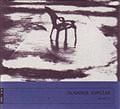 Sławomir Kupczak
Sławomir Kupczak
Sławomir Kupczak: Novella; Akwaforta; Cetirizini dihydrochloridum
Cezary Duchnowski – computer, Sławomir Kupczak – computer, Agata Zubel – voice, ocarina, recorder
DUX 0772
 BASSOLO: Aleksander Gabryś.
BASSOLO: Aleksander Gabryś.
Daniel Buess – piano, Aleksander Gabryś – double bass, Consuelo Giulianelli – harp, Jürg Henneberger – piano.
XXth & XXIst centuries Contrabass Music
DUX 0800-801
 In Paradisum
In Paradisum
Feliks Nowowiejski: In Paradisum, poem for organ solo Op. 61 • Pierre-Marie Delfieux: Meditations on the Seven Last Words of Christ on the Cross. Sebastian Adamczyk – organ, The Choir of Sisters and Brothers from the Monastic Communities of Jerusalem in Warsaw
DUX 0807
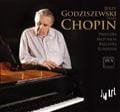 Jerzy Godziszewski plays Chopin
Jerzy Godziszewski plays Chopin
DUX 0817-18
 Piotr Moss
Piotr Moss
Meditation und Psalm for choir and orchestra (2001);
Voyage – concerto for two harps and orchestra (2000);
Cinq tableaux de Caspar David Friedrich for orchestra (2007)
Chór Polskiego Radia w Krakowie, National Polish Radio Symphony Orchestra – cond. Michał Klauza, Anna Sikorzak-Olek – harp, Grażyna Strzeszewska – harp
DUX 0820
 Józef Eliasz i Eljazz Big – Band oraz Orkiestra Symfoniczna Filharmonii Pomorskiej. W Rytmie Chopina.
Józef Eliasz i Eljazz Big – Band oraz Orkiestra Symfoniczna Filharmonii Pomorskiej. W Rytmie Chopina.
Eljazz Big-Band
DUX 0825
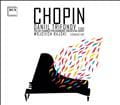 Chopin:Piano Concerto No.1 in E minor Op.11.
Chopin:Piano Concerto No.1 in E minor Op.11.
Piano Concerto No.1 in E minor Op.11. Arrangement for string orchestra; Barcarolle in F sharp major Op. 60;
Impromptu in A flat major Op. 29;
Impromptu in F sharp major Op.36;
Tarantella in A flat major Op. 43
Polska Filharmonia Kameralna – dyr. Wojciech Rajski, Daniil Trifonov – piano
DUX 0832
 Kwartludium
Kwartludium
Wojciech Blecharz: Torpor (2008);
Arne Sanders: Dubug (Strange, I’ve seen that face before) (2008);
Sławomir Wojciechowski: Rope of sands (2009);
Dobromiła Jaskot: Hum… (2008);
Gabriel Paiuk: Distancia (efectos de superficie) (2008);
Paweł Hendrich: Cyclostratus (2008)
Patryk “TikTak” Matela – beatboxer, Jakub „Zgas” Żmijowski – beatboxer
DUX 0808
Grzegorz Fitelberg Conducts On CD
By Gary Fitelberg
Unfortunately, only a limited number of archival sound recordings of the musical output of Grzegorz Fitelberg—whether as composer or conductor—have been recorded thus far. Moreover, an accurate and complete discography is nearly impossible to determine since most of his music has been disguised under the credits of others.
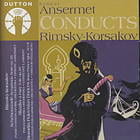 One such misleading CD entitled Ernest Ansermet conducts Rimsky-Korsakov (Dutton CDBP 9712) actually features several conductors. Per the album title, the famous conductor Ansermet leads the Paris Conservatorie Orchestra in Rimsky Korsakov’s Sherazade, op.35, in a recording made at La Maison de la Mutualite in Paris on June 1-2, 1948. On the same CD however is the great performance of Borodin’s Polovitsian Dances (arr. By Rimsky-Korsakov) under the baton of Grzegorz Fitelberg leading the London Philharmonic Orchestra. This was recorded at Wellesley Town Hall, in London, England on April 16, 1946. Last but not least is the Rimsky-Korsakov composition Skazka, op. 29, as conducted by Constance Lambert with the Philharmona Orchestra. This was recorded at Kingsley Hall, London, England on January 30, 1946.
One such misleading CD entitled Ernest Ansermet conducts Rimsky-Korsakov (Dutton CDBP 9712) actually features several conductors. Per the album title, the famous conductor Ansermet leads the Paris Conservatorie Orchestra in Rimsky Korsakov’s Sherazade, op.35, in a recording made at La Maison de la Mutualite in Paris on June 1-2, 1948. On the same CD however is the great performance of Borodin’s Polovitsian Dances (arr. By Rimsky-Korsakov) under the baton of Grzegorz Fitelberg leading the London Philharmonic Orchestra. This was recorded at Wellesley Town Hall, in London, England on April 16, 1946. Last but not least is the Rimsky-Korsakov composition Skazka, op. 29, as conducted by Constance Lambert with the Philharmona Orchestra. This was recorded at Kingsley Hall, London, England on January 30, 1946.
A review by an unknown music critic as published in The Monthly Letter, signed EMG, December 1948 summarizes the sound recording with an underhanded compliment and double edged critique as follows:
This performance does not lack vitality; on the contrary, the vitality seems at times to boil over. The orchestral effects are very clear; the colouring accurate and there is a good sense of the realistic; the hall atmosphere (Wembley Town Hall, seemingly to be almost as satisfactory as the Kingsway Hall), mostly to be commended, at times becomes a trifle overpowering in the bass register.
As orchestral playing, the performance is fairly good, though there is here and there some slipshod work over trills, and so on. But that is possibly a fault to be laid at the charge of the conductor rather than the orchestra; for Fitelberg seems to us to be over-excitable, to get all hot under the collar and so try to get more out of the music than it will tolerate. No one could complain of his lack of fervour or vividness; but at times in his excitement he becomes careless about the phrase rhythms. But this is without question the best recording of these Dances: the effects obtainable on a good electrical reproducer are most exhilarating.
Another CD, entitled L’art de Grzegorz Fitelberg Vol. 1, was released by the French label Dante LYS on December 17, 1996 but is now out of print and unavailable. It featured the following compositions: Karol Szymanowski – Concerto Pour Violin No. 1 (Eugeniz Uminska, Violin) and Symphony No. 2, and Rimsky-Korsakov – Tsar Saltan Suite (Recorded 1945-47). For this recording, Fitelberg conducted the Philharmonia Orchestra and the National Polish Radio Symphony Orchestra (NOSPR). This initial CD featuring Fitellberg’s conducting tragically never saw a Volume II, much to the disappointment and frustration of those who were optimistic that his legacy of music would finally be properly preserved.
An English label Beulah released a CD entitled “Russian Classics of the 78 Era” (Beulah 1PD38) featuring the same recording of Grzegorz Fitelberg conducting the LPO of the Rimsky-Korsakov composition Tsar Sultan. Other Rimsky-Korsakov works performed by other conductors and orchestras include his Capriccio de espagnol and his colleague and contemporary Mussogorsky’s Khovanschina Prelude (arr. By Rimsky Korsakov). One can also listen to works by Tchaikovsky, Lladov and Balakirov on this CD.
One hopes that one day one of the labels such as Beulah, Dutton or Pierian (specializing in archival sound recordings from old LP 33 and 1/3, 45, or 78s) will release a CD devoted to the previously mentioned activities of Fitelberg conducting Borodin’s Polovitsian Dances and Rimsky-Korsakov’s Tsar Sultan on the same CD. The recordings of the National Polish Radio Symphony Orchestra performing with Fitelberg as conductor include a vast wealth of archival sound recordings of works by other German, Polish and Russian composers.
 The Danish company Danacord has also issued a recording of Fitelberg conducting the Danish National Radio Symphony Orchestra in a performance of Szymanowski’s Symphony No. 4, Symphonie Concertante, with the composer himself playing the important piano part. Originally recorded in January 19, 1933, it is featured on Danacord’s “Great Singers and Musicians in Copenhagen: 1931-39 – Historical Live Recordings from the Archive of Danmarks Radio” (DACOCD 691-696 [DDD]).
The Danish company Danacord has also issued a recording of Fitelberg conducting the Danish National Radio Symphony Orchestra in a performance of Szymanowski’s Symphony No. 4, Symphonie Concertante, with the composer himself playing the important piano part. Originally recorded in January 19, 1933, it is featured on Danacord’s “Great Singers and Musicians in Copenhagen: 1931-39 – Historical Live Recordings from the Archive of Danmarks Radio” (DACOCD 691-696 [DDD]).
TVP Polonia also produced a CD of Grzegorz Fitelberg conducting Polish composers Noskowski, Monuiszko, Karlowicz and Szmanowski from archival sound recordings of Fitelberg and NOSPR. This would later be re-released by Polskie Radio. S.A., in commemoration of the 50th Anniversary of Grzegorz Fitelberg’s death as well as the 8th Grzegorz Fitelberg International Competition for Conductors in 2003. This CD was the recipient of the 1st place price of the Fryderyk Award in the classical music category and is dedicated to the maestro as conductor.
Gary Fitelberg is a Polish-American author, biographer, historian, music critic and musicologist specializing in the Fitelberg family musicians, Young Poland (Młoda Polska), Polish –Jewish musicians, and exiled and forgotten musicians.
Anniversaries
Born This Month
-
June 1, 1909 – Maria DZIEWULSKA, composer and theoretician (d. 2006)
-
June 4, 1845 – Aleksander POLIŃSKI, music historian (d. 1916)
-
June 4, 1784 – Adam CZARNOCKI, music ethnographer (d. 1825)
-
June 5, 1865 – Felicjan SZOPSKI, composer and music critic (d. 1939)
-
June 6, 1929 – Bogusław SCHAEFFER, composer, writer
-
June 12, 1897 – Aleksander TANSMAN, composer and pianist,
-
June 16, 1923 – Henryk CZYŻ, conductor and composer
-
June 17, 1930 – Romuald TWARDOWSKI, composer
-
June 28, 1895 – Kazimierz SIKORSKI, composer and teacher
-
June 28, 1904 – Włodzimierz POŹNIAK, musicologist
Died This Month
-
June 1, 1869 – Jozef DULEBA, pianist and participant of January Uprising, died in a duel (b. 1843)
-
June 3, 1904 – Daniel FILLEBORN, singer and performer of main parts in Moniuszko’s operas (b. 1841)
-
June 4, 1872 – Stanislaw MONIUSZKO, Father of Polish National opera (b. 5 May 1819)
-
June 5, 1964 – Henryk SZTOMPKA, pianist, Chopin specialist, teacher
-
June 9, 1932 – Natalia JANOTHA, pianist and composer, student of Clara Wieck-Schumann, Royal Pianist in London, 400 opus numbers (b. 1856)
-
June 10, 1953 – Grzegorz FITELBERG, conductor, composer, great promoter of new music, esp. Szymanowski (b. 1879)
-
June 28, 1938 – Ludwik DRZEWIECKI, pianist and father of Zbigniew Drzewiecki
-
June 29, 1945 – Kazimierz GARBUSINSKI, pianist, organist, composer
-
June 30, 1957 – Michal SWIERZYNSKI, composer and choral conductor














